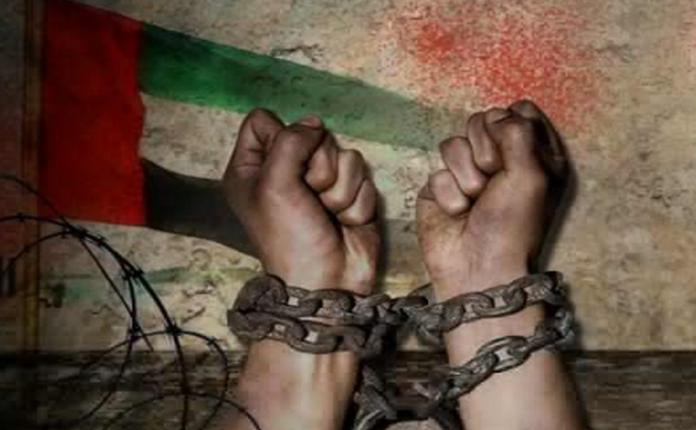The International Campaign for Freedom in the Emirates said that since the beginning of the Arab Spring revolutions in 2011, the Abu Dhabi authorities have imposed increasingly repressive restrictions on the freedom of expression of activists, journalists, lawyers and academics.
The campaign highlighted the arrest of dozens of opponents by the Emirati authorities after their peaceful call for political freedom and reform in the country.
It pointed out that among the convicts are Ahmed Mansour and Dr Nasser bin Ghaith, who has since been arrested and sentenced to ten years in prison despite being pardoned in 2012.
This was followed by the case of UAE 94 in 2013, in which 94 different academics and lawyers were arrested based on unfounded allegations that they sought to overthrow the regime after they signed a petition calling for democratic reform. Of the 94 detainees, 69 were sentenced to prison terms ranging from 7 to 15 years.
Subsequently, the UAE authorities continued to restrict the rights and freedoms of various activists, NGOs, and the banned civil society organization Islah – with some members stripped of their citizenships and detained.
According to the international campaign, more than 200 political prisoners remain in detention for peaceful political expression, often after unfair trials.
This includes Dr Muhammad al-Roken and Muhammad al-Mansoori, convicted in the UAE trial 94. During his detention, Dr Muhammad al-Roken was subjected to various violations of his fundamental rights, including psychological intimidation and denial of access to his lawyer.
Mohamed Al-Mansoori was also subjected to many human rights violations, including after his initial arrest when he was subjected to enforced disappearance for 231 days in an unknown location, where he was tortured.
This was also the case with Amina Al Abdouli and Maryam Al Balushi, who were arrested in 2015. Amina’s arrest came after she posted a tweet supporting the Arab Spring after her father was killed in Syria while Maryam was under arrest.
After their arrest, the two women were held in an unknown location where they were denied contact with the outside world and subjected to beatings and solitary confinement.
Although they are due to be released in 2019, the two women are still behind bars, as they are still subjected to various violations of their human rights.
Other political prisoners include Nasser bin Ghaith, an economics teacher at Sorbonne Abu Dhabi who has been imprisoned since 2015, and prominent human rights activist Ahmed Mansour. They suffered long periods of deterioration and isolation.
The inherent ambiguity of key legislation partly facilitated these arrests. This is particularly evident in the laws against cybercrime and terrorism in the UAE.
A vague definition of what could be considered terrorism has allowed many activists to be arbitrarily labelled “enemies of the state” and their peaceful protests to be defined as legal crimes of “extremist or terrorist ideology.”
Consequently, the UAE’s counterterrorism law has contributed to alarming unsupported arrest, torture, and arbitrary, indefinite detention trends.
Many prisoners remained held beyond their release dates, often in Al Razeen Prison in Abu Dhabi (notorious for its harsh conditions).
For example, Imran Ali Al-Harthy, accused in the UAE-94 trial, should have been released in July 2019, and Abdullah Ibrahim Al-Helou, convicted in June 2016 of belonging to the arm of the Al-Islah charity, should have been released in May 2017.
Meanwhile, UAE law discriminates against freedom of expression and discriminates against gender.
After International Women’s Day, there is also a need to highlight persistent discrimination trends against girls and women in UAE legislation.
For example, personal status law gives husbands and courts the power to decide whether a married woman can leave home to work.
Furthermore, the legislation only removed “the husband’s discipline of his wife” until late 2016 as an “exercise of rights.” finally, whether or not children of Emirati mothers obtain automatic citizenship remains at the federal government’s discretion.



